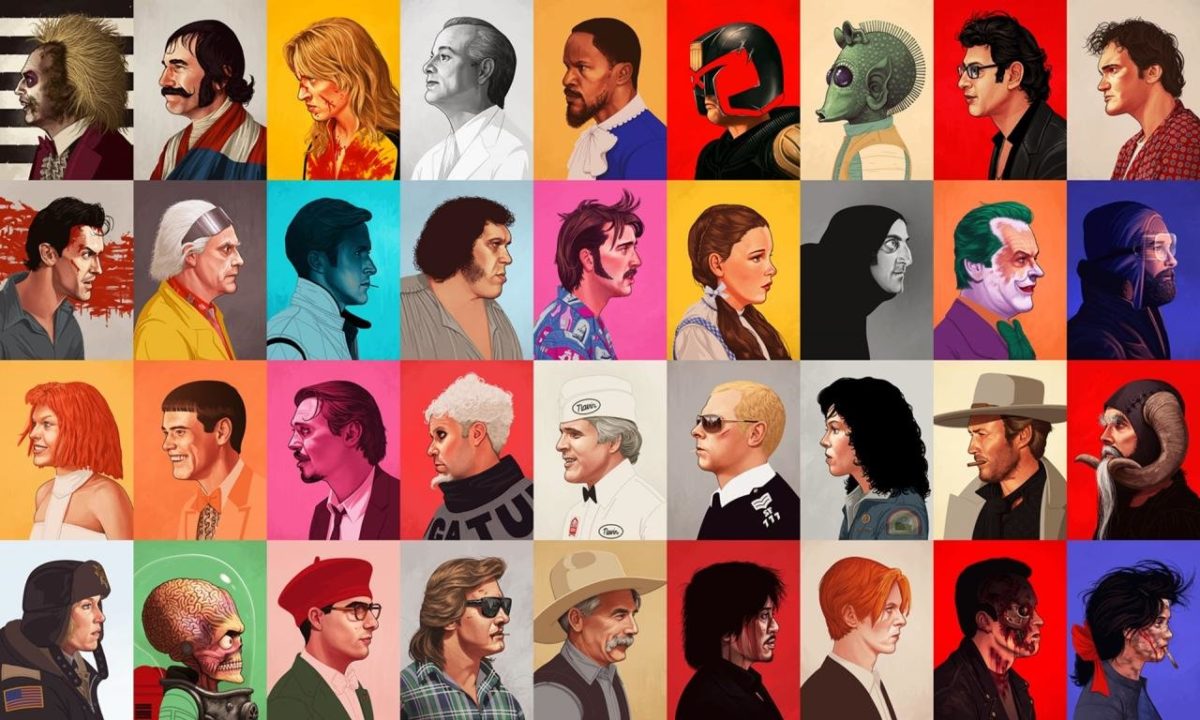https://www.tfdsupplies.com/blogs/educator-panel/good-will-hunting-movie-review
Good Will Hunting tells the story of troubled genius savant Will Hunting, played by Matt Damon (The Departed, The Martian). Will is a convicted felon who is a janitor at MIT through his Parole Officer and he also happens to be able to solve incredibly complex math equations that mathematics professionals can’t even solve. When he gets arrested for brawling with his buddies Chuckie, played by Ben Affleck (Argo, The Town), Morgan, played by Casey Affleck (Manchester by the Sea, Out of the Furnace), and Billy, played by Cole Hauser (Dazed and Confused, Pitch Black), he is undoubtedly going to jail, with little to no chance of avoiding prison time.

Enter MIT professor Gerald Lambeau, played by Stellan Skarsgård (The Girl with the Dragon Tattoo, Chernobyl), who gives Will a chance at freedom under two conditions. Will must collaborate with Lambeau, working on various mathematical equations, as well as attend therapy sessions. After Will mocks each and every therapist Lambeau throws at him, causing them to subsequently quit, Lambeau decides to turn to his estranged college roommate, Sean Maguire, played by Robin Williams (Good Morning Vietnam, Jumanji) in a last-ditch effort. Sean proves to be a worthy adversary for Will’s stubborn, tough exterior, while Will also explores a very new experience of dating Minnie Driver’s (Grosse Point Blank, Sleepers) character, Skylar.

The performances in the film are startlingly brilliant and realistic. Damon, the Affleck brothers, and Hauser play gritty blue-collar workers with a penchant for violence and foul language, with Damon being nominated for an Oscar for his excellent work in the Best Actor in a Leading Role category. Robin Williams deservingly won the Oscar for Best Supporting Actor with his fierce, yet tender performance as Sean Maguire. Minnie Driver was also rightfully nominated for her riveting performance in the Best Actress in a Supporting Role category. While Skarsgård wasn’t nominated, his work is extraordinary and truly displays his ability to walk the line between sympathetic and downright unlikeable. All of the characters are well rounded and unique, which adds to the charm of the film.

Good Will Hunting is directed by Gus Van Sant (My Own Private Idaho, Milk) and was written by Matt Damon and Ben Affleck, who both won the Oscar for Best Screenplay Written Directly for the Screen in 1998. It is very much an example of arthouse cinema, while also having a deep lesson embedded within it. The main way of showing this is through the very different approaches of Lambeau and Sean. Lambeau views Will as a smarter version of himself, while Sean views Will as a troubled version of himself. Both role models, or “teachers,” have good intentions, however Lambeau’s intentions are beleaguered by being somewhat self-serving, if not an obvious attempt to live vicariously through Will’s extraordinary intellect.

The most teachable moment from the film comes after Lambeau and Sean have a fiery disagreement concerning Will near the end of the film. It is a symbolic battle for Will’s life and wellbeing which showcases Lambeau’s shortcomings as well as Sean’s protectiveness over Will’s wellbeing. Afterwards, Sean tells Will, “Do what’s in your heart, son. You’ll be fine.” As teachers and educators it is important not to judge a book by its cover. Trouble students are often troubled for a reason, and we find that to be the case with Will, who survived multiple abusive foster parents, creating the rigidly defensive exterior we see in the beginning of the film.

There is one other line that really resonated with me, which was spoken by Lambeau’s grad student assistant, Tom. He rebukes Will by saying, “Most people never get to see how brilliant they can be. They don’t find teachers that believe in them. They get convinced they’re stupid.” Tom is immediately sent off to make coffee by Lambeau after he delivers this line, showing how little he has become since Will was introduced to the pair’s lives. Although it was said to make Will feel ashamed and more appreciative towards Lambeau, the line undoubtedly holds its own merit. Films like Good Will Hunting contain good and bad examples of how to teach or educate, and Tom’s line showcases a common flaw of tired, overworked educators. This theme is most obvious with Lambeau and his partialness towards brilliant minds at the detriment to his other students.
MPAA Rating: Rated R for strong language, including some sex-related dialogue
Runtime: 126 Minutes
Produced & Distributed by: Miramax















































